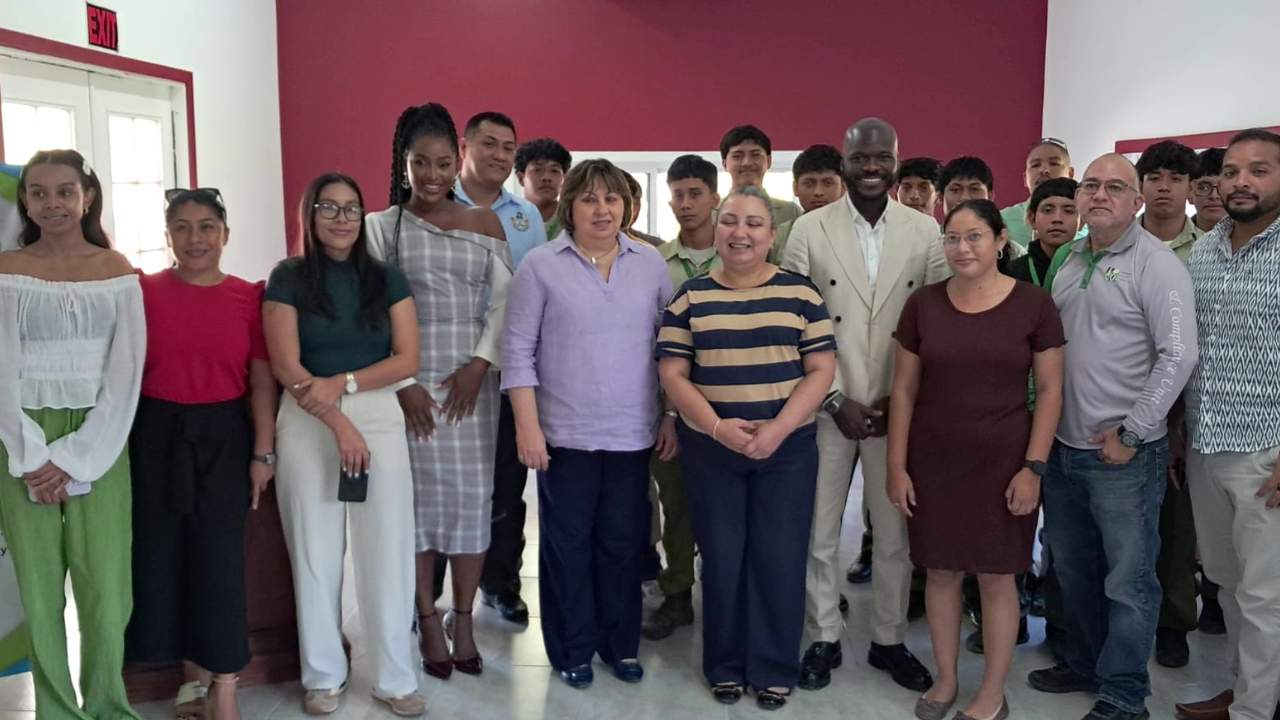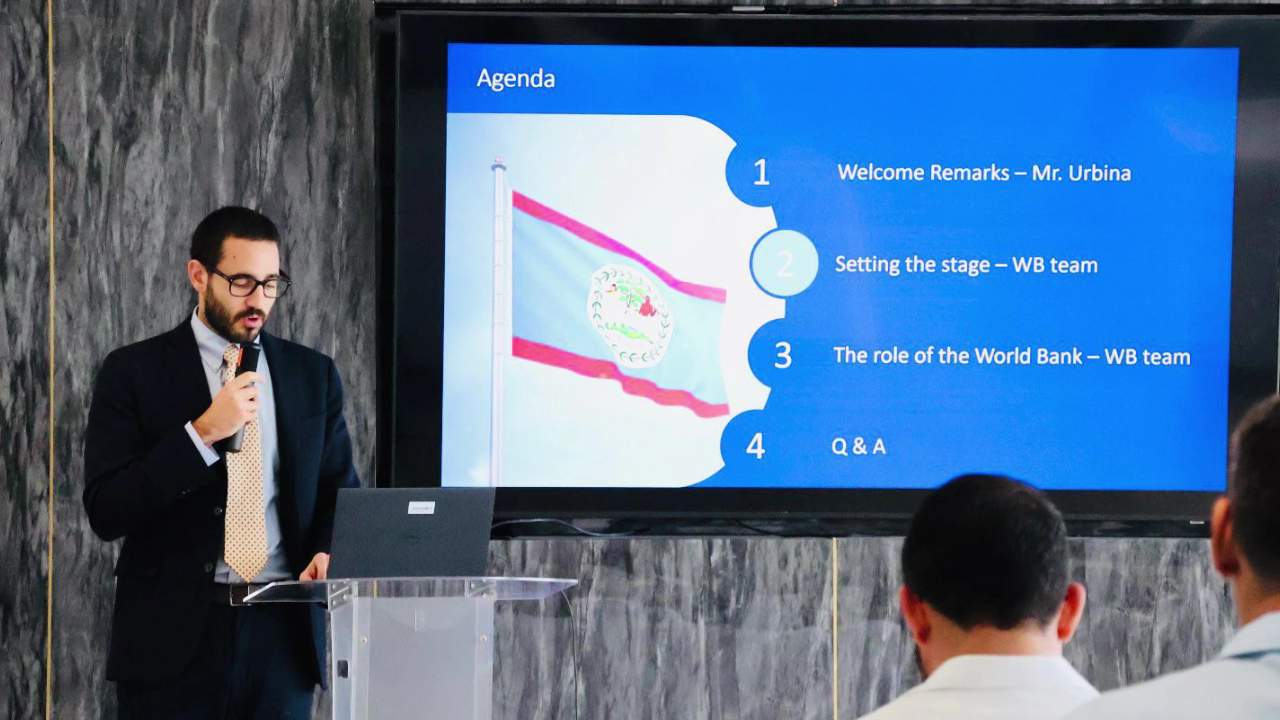Trinidad and Tobago is making significant strides in embracing artificial intelligence (AI) as part of its national development strategy. Under the leadership of Dominic Smith, Minister of Public Administration and AI, the country has launched a National AI Assessment in collaboration with the United Nations Development Programme (UNDP) and UNESCO. This initiative aims to evaluate the nation’s readiness to adopt AI technologies and ensure ethical and inclusive implementation. The assessment employs two key tools: UNDP’s Artificial Intelligence Landscape Assessment (AILA) methodology and UNESCO’s Readiness Assessment Methodology (RAM). These tools will identify institutional and regulatory gaps while fostering an ethical AI ecosystem. The launch event, held on November 26 at the Government Campus Plaza in Port of Spain, brought together public and private stakeholders, civil society, and international representatives. Smith emphasized the transformative potential of AI, stating that it could modernize public services, enhance productivity, and create high-value jobs. However, he acknowledged challenges such as skills gaps, cybersecurity, and public trust. The government plans to roll out training initiatives to upskill citizens and position Trinidad and Tobago as a leading AI-driven island state. The findings of the assessment are expected to be publicly released in March/April 2026, marking a pivotal step in the country’s digital transformation journey.
分类: technology
-

Public service digitisation wins President’s awards
In a landmark celebration of technological advancement in public service, the eighth annual President’s Award for Innovation in Service Excellence (PrAISE) ceremony at President’s House, St Ann’s on November 27 showcased groundbreaking digital initiatives transforming citizen services.
The North West Regional Health Authority (NWRHA) emerged as a standout winner, securing the prestigious President’s Award in the internal user experience category for its revolutionary Digital Health Information System. Chief Executive Anthony Blake characterized the achievement as “a victory for both NWRHA patients and the dedicated team driving this initiative since 2019.”
This comprehensive digital ecosystem represents a monumental shift from paper-based medical documentation to a unified digital platform spanning hospitals, health centers, and community services. The conversion process employs specialized scanning technology and involves young professionals in on-the-job training programs working alongside medical records personnel to ensure accurate digitization of patient histories.
Blake revealed the authority’s ongoing development of a mobile application version that will empower both healthcare providers and patients to better manage medical information, promising significantly streamlined service delivery.
Similarly transformative, the Ministry of Education claimed the citizen experience award for its First Year Infant Registration System—a digital platform that has revolutionized school placement procedures through simplified digital processes.
President Christine Kangaloo emphasized the critical importance of such innovations, stating: “Service culture improvement necessitates fundamentally reimagining our operational methodologies, citizen engagement strategies, and creative problem-solving capabilities among public officers. Achieving superior outcomes is impossible while clinging to obsolete systems and traditional approaches—innovation must become the connective tissue unifying all improvement efforts.”
Additional recognition included audience choice awards going to the Health Ministry’s substance abuse prevention workshop and NALIS’s Marrakesh Project enhancing accessibility for visually impaired citizens. Public voting honored the Women’s Health Directorate’s maternal-newborn surveillance system and IGovTT’s AI-powered Anansi government information platform.
The Inter-American Development Bank’s senior health specialist Ian Ho-A-Shu reaffirmed the institution’s commitment, noting: “PrAISE has consistently provided an essential platform fostering innovation, collaboration, and morale within Trinidad and Tobago’s public service. As a development institution, we remain dedicated to institutional strengthening and capacity building—principles powerfully embodied by this initiative.”
-

Digicel TT to spend $20m on upgrades
Digicel TT has unveiled a major $20 million infrastructure investment aimed at revolutionizing its telecommunications network across Trinidad and Tobago. The comprehensive upgrade strategy involves decommissioning the outdated 2G network by December 31, 2025, while simultaneously enhancing data capabilities and network resilience.
CEO Pieter Verkade confirmed the company’s substantial commitment to technological advancement, stating that this investment demonstrates Digicel’s long-term dedication to the Trinidad and Tobago market. The modernization initiative includes multiple components: upgrading mobile sites, reinforcing critical infrastructure, and transitioning important fiber lines underground for enhanced protection against environmental factors.
The infrastructure overhaul has already produced tangible results with seven new mobile sites becoming operational. An additional twenty sites are scheduled for completion by early 2026, significantly expanding coverage and improving data transmission speeds nationwide. This expansion directly addresses growing consumer and enterprise demand for high-quality internet and reliable communication services.
For enterprise and government clients, the network enhancements promise strengthened uptime capabilities, improved cybersecurity measures, and infrastructure capable of supporting data-intensive operations. The technological improvements specifically target the increasing requirements for connectivity and data-driven business processes.
The 2G network retirement represents a strategic reallocation of spectrum resources toward next-generation technologies. Digicel began preparing customers for this transition three years ago, distributing over 700 upgraded devices at no cost to ensure seamless migration. Customers still utilizing 2G-exclusive handsets are encouraged to visit Digicel stores to obtain compatible replacement devices while inventory remains available.
This $20 million investment constitutes part of Digicel’s broader commitment to Trinidad and Tobago, where the company has invested over $1.2 billion since its establishment. The current upgrades aim to deliver a more robust, future-ready network that maintains high performance standards amid escalating data consumption patterns.
Verkade emphasized that these efforts ultimately focus on constructing a modern, resilient telecommunications framework that will support Trinidad and Tobago’s digital transformation for years to come, ensuring reliable service quality and enhanced customer experiences across all user segments.
-

Corozal Launches Free Digital Skills Bootcamp
In a groundbreaking move to enhance digital proficiency and economic diversification, the Ministry of Investment, in collaboration with the Corozal Think Tank, has unveiled the Advanced Technology Training Program. This innovative initiative, aimed at equipping individuals with essential digital skills, focuses on areas such as digital marketing, e-commerce, and Customer Relationship Management (CRM) administration. The program, delivered by London-based RHICS Ltd. and hosted by Ariston Marketing in Corozal Town, spans six weeks and offers a comprehensive curriculum covering social media campaigns, search engine optimization, e-commerce platforms, and CRM automation. Open to working-age individuals, including high school, junior college, and university students, as well as educators, the training is entirely free of charge. The program commences with an intensive bootcamp, followed by online modules and practical lab sessions. At the launch event, prominent figures including Minister Thea Garcia-Ramirez and CEO Narda Garcia underscored the critical role of digital skills in shaping Belize’s economic future. This initiative is part of a broader strategy to create sustainable employment opportunities in high-demand tech sectors and drive economic growth in Corozal.
-

Belize Partners with World Bank to Boost Cybersecurity Readiness
In a significant move to bolster its cybersecurity infrastructure, Belize has joined forces with the World Bank Group to conduct a comprehensive national cybersecurity assessment. The initiative, spearheaded by the Ministry of E-Governance, convened a high-profile meeting in Belize City on November 25, 2025. The gathering included representatives from the government, private sector, and critical infrastructure sectors, all united in the goal of evaluating the nation’s preparedness against escalating cyber threats. Dr. Giacomo Assenza, a leading cybersecurity expert from the World Bank, led the expert team overseeing the assessment. Jose Urbina, CEO of the Ministry of E-Governance, hailed the event as a pivotal moment in Belize’s digital transformation journey. Urbina articulated a vision of a Belize where digital services are secure, businesses operate without fear of cyberattacks, and innovation thrives under robust cybersecurity measures. This five-year initiative aims to shape national policies and fortify the country’s cyber defenses. Upon completion, the assessment will culminate in a detailed report, complete with actionable recommendations, which will be made available to the public.
-

Industrial Tribunal launches AI pilot as Winder calls for safeguards against misuse
Chief Justice Ian Winder has issued a stark warning about the potential risks of artificial intelligence (AI) in judicial processes, emphasizing that technology must never compromise the integrity of justice. Speaking at the opening of the Industrial Tribunal’s legal year, Justice Winder acknowledged the benefits of digital tools in enhancing efficiency and transparency but stressed the need for robust safeguards to prevent misuse. He highlighted the importance of maintaining judicial fairness, particularly in cases involving self-represented litigants, where AI can serve as a valuable aid when used responsibly. Justice Winder urged the tribunal to adopt guidelines recently issued by the Supreme Court on the ethical use of AI, ensuring that technological advancements do not undermine thoroughness or public trust. Industrial Tribunal President Indira Demeritte-Francis announced the launch of an AI pilot project aimed at assisting with legal research, judgment formatting, and case management. This initiative is part of a broader modernization effort, with its effectiveness set to be evaluated in 2026. The move follows a recent directive from the Supreme Court, prompted by an incident where an attorney submitted AI-generated “fake cases” in support of a legal argument. The directive underscores the need for accountability in AI usage, requiring court users to disclose AI involvement in document preparation and ensure the accuracy of submissions. Justice Winder also cautioned against inputting sensitive or privileged information into unsecured AI platforms, as such data could be inadvertently shared with other users. He emphasized that while AI can aid judicial processes, its deployment must never erode confidence in the impartiality and fairness of the courts.
-

India advocates for human-centered technologies
During a session titled ‘A Fair and Equitable Future for All: Critical Minerals, Decent Work, and Artificial Intelligence,’ Indian Prime Minister Narendra Modi underscored the importance of making advanced technologies, particularly artificial intelligence (AI), globally accessible rather than confined to national boundaries. He advocated for open-source models over proprietary systems, emphasizing inclusivity and collaboration. Modi highlighted how India has embedded this vision into its technological ecosystem, yielding substantial advancements in space applications, AI, and digital payments, areas where India is a global leader. He stressed the need for equitable access, population training, and responsible deployment of these technologies. The Prime Minister also referenced the India-AI Mission, which aims to develop accessible high-performance computing capacity. Modi asserted that while AI should enhance human capabilities, ultimate decision-making must remain in human hands. He called for a shift in focus from ‘Jobs of Today’ to ‘Capabilities of Tomorrow’ and proposed the creation of a Global Framework for Talent Mobility in the coming years. Additionally, he extended an invitation to all G20 nations to attend the AI Impact Summit, themed ‘Sarvajanam Hitaya, Sarvajanam Sukhaya’ (Well-being for all, Happiness for all), scheduled for February 2026 in India. Concluding his address, Modi reaffirmed India’s commitment to global well-being, sustainable development, reliable trade, fair finance, and inclusive progress.
-

Politie administratie wordt volledig digitaal
The police force is preparing for a significant transformation as it transitions to a fully digital administrative system starting next year. During a presentation at the headquarters on Duisburglaan, leaders and staff were introduced to the plans for a paperless workflow. The session involved intensive brainstorming on practical implementation, including how secretariats will process, manage, and archive documents digitally, the technical requirements needed, and how employees will be supported during this transition. Automation aims not only to drastically reduce paper usage but also to enhance the accessibility, processing speed, and reliability of information. Participants were briefed on the benefits of digital processes, ranging from more efficient workflows to improved security and fewer administrative errors. The Public Relations department explained how the new methods will be gradually implemented and how the ICT department will provide support. A pilot project will commence in January 2026, involving all secretariats in the new paperless system. The results will be used to refine the system before its full rollout across the organization. This move towards a paperless administration marks a significant step in modernizing the police force’s internal processes and strengthening its professional operations.


